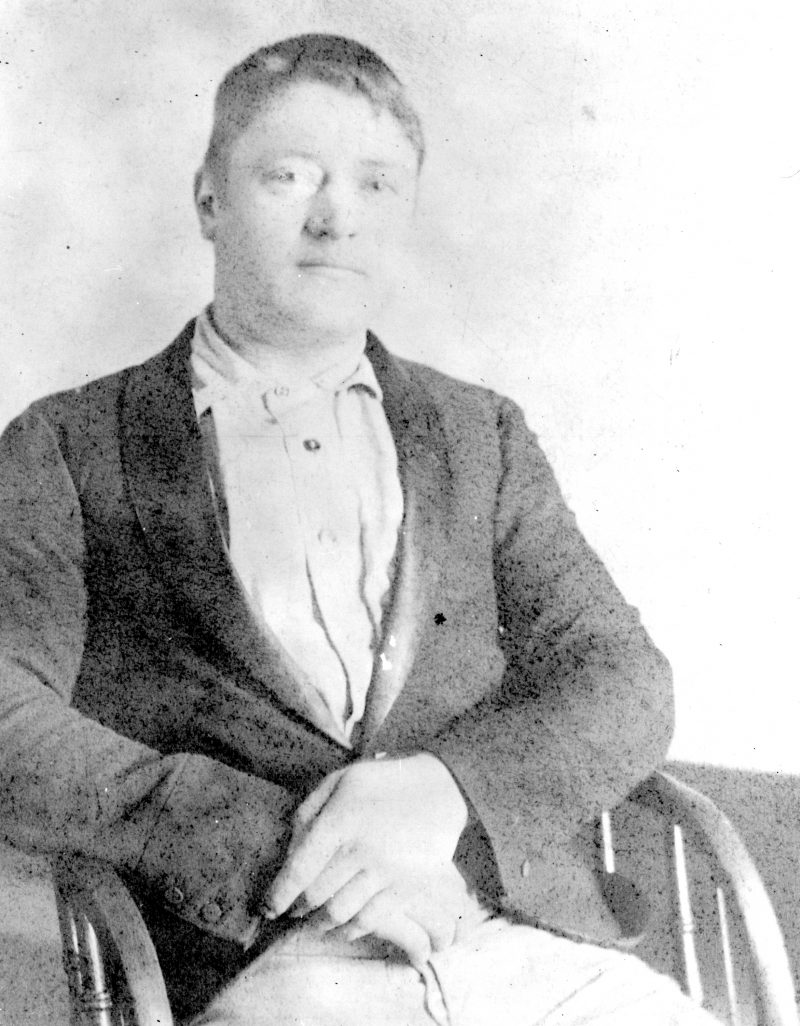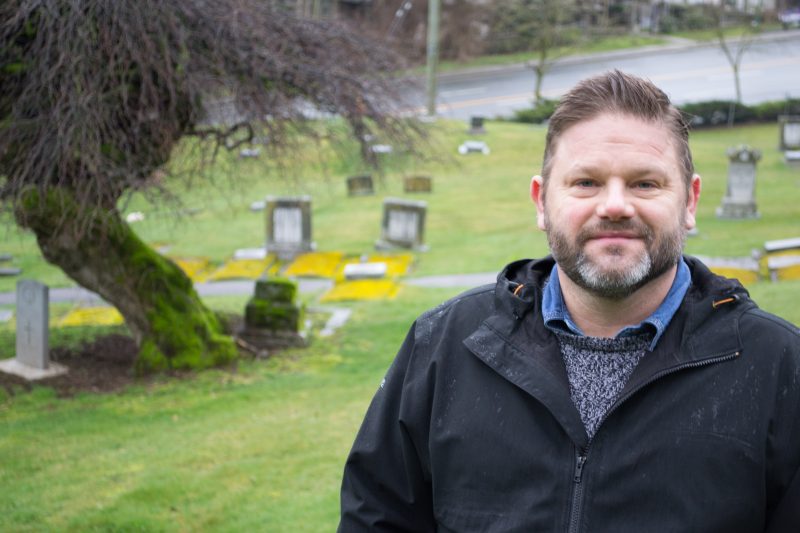Frontier justice
April 07th, 2020

The Trials of Albert Stroebel: Love, Murder and Justice at the End of the Frontier (Caitlin Press $24.95) by Chad Reimer
Review by Valerie Green
*
Sumas Prairie, April 1893. The body of John Marshall is found on the veranda of his cabin by a neighbour, trapper Ira Airheart, who had come to check on him.
Shocked by the evidence of a gruesome murder, Airheart runs two miles to the nearby town of Huntingdon, south of the Fraser River.
Before the authorities could arrive at Marshall’s cabin, townspeople were already traipsing around the cabin, tainting the crime scene.
Once the authorities did arrive, they ordered an on-site autopsy and a coroner’s inquest. The ensuing investigation soon led to the arrest of one of John Marshall’s friends, the handyman and part-time barber, Albert Stroebel, thought by many to be “a harmless boy who seemed much younger than his twenty years.” Arrested and put in jail, Stroebel is described as a gentle soul, and “an unlikely killer; short, lean and crippled in the right leg and foot.”
So begins the whodunnit, The Trials of Albert Stroebel by Chad Reimer.
*
Reimer gives a lengthy description of Sumas Prairie, a low-lying landform shared by B.C. and Washington State, about forty miles from Vancouver. At the beginning of the 1890s it was still a frontier settlement where immigrants wandered freely back and forth across the border, giving little thought to the fact that they were moving from one country to another.
We learn about Strobel’s background, how he came to be living in a room at the owned by Margaret Bartlett, matriarch of the Bartlett family. Margaret, a strong woman who held her family together, ran the hotel while her husband Charles spent many nights away from home “drinking the night away.”
Comfortable living with the Bartletts, young Albert fell in love with one of the Bartlett daughters, 13-year-old Elizabeth. Any relationship between a man of twenty and a very young teen would be frowned upon today, but in those days many young women were married at fourteen.

The only known photograph of Albert Stroebel, seen wearing a faded tuxedo jacket over his prison garb. Courtesy Royal BC Museum.
Stroebel was arrested for John Marshall’s murder a few days after the body was discovered. Other suspects included a passing tramp and a young boy named David Eyely who had delighted in teasing Albert Stroebel and getting him into trouble.
Stroebel’s trial was set for June 7 1893 under the province’s most distinguished jurist, Judge Matthew Begbie. But Judge Begbie surprised everyone by postponing the trial to November.
Hence, Stroebel’s initial trial, presided over by John McCreight, a man who had served as the first Premier of British Columbia (before Amor de Cosmos) began in November, 1893.
By the time the November trial began in New Westminster, public interest was high. The court room was packed to capacity. People had their appetite whetted for “true crime” from the many lurid newspaper reports of stories about characters like ‘Jack the Ripper’ in London and Lizzie Borden with her axe murders in Massachusetts.
It ended with a hung jury, although Stroebel’s defense lawyer, Aulay Morrison, did a masterful job of defending him. As the jury could not reach a unanimous decision, a second trial was called for.
Rather than postponing until the following Spring Assizes in New Westminster, crown prosecutor Theodore Davie requested the trial be moved immediately to a Victoria court, to be presided over by Judge Walkem. For his second trial, Stroebel would be tried alongside David Eyely, who had confessed to having been involved in the murder with Stroebel.
Readers will enjoy insight into the characters of Begbie and McCreight, as well as varying interpretations of the law, including the actions of Theodore Davie, the crown prosecutor who presided over both of Stroebel’s trials, and was brilliant throughout, despite a lingering illness which eventually took his life in 1898.
At 22, Theodore Davie had taken a bride of fourteen, Blanche Baker, and their nuptials had caused a scandal. For that reason, Davie might well have had some understanding of the relationship between Albert Stroebel and Elizabeth Bartlett.
Without modern day pathology and forensics such as DNA and finger printing, lawyers did the best they could to defend or prosecute criminals. Stroebel was finally found guilty and sentenced to hang on January 31 of 1894, but the story was far from over as Stroebel awaited his fate on death row.
The surprising twists and turns in Stroebel’s case are superbly portrayed by Reimer and one is left to wonder “was justice finally served for William Marshall or not?”
This work of creative non-fiction would have benefitted from the inclusion of an index but it is impeccably researched and told in an electrifying, attention-grabbing way by Chad Reimer who is also the author of Before We Lost the Lake: A Natural and Human History of Sumas Valley (Caitlin 2018).
9781773860206

Author Chad Reimer at Musselwhite Cemetery in Abbotsford where John Marshall, the murder victim, is buried.
*
Reviewer Valerie Green has written more than twenty non-fiction historical and true-crime books. Her debut novel Providence (Sandra Jonas Publishing) will be the first in a series of four novels depicting a family saga arising from early B.C. history, called The McBride Chronicles.


Leave a Reply